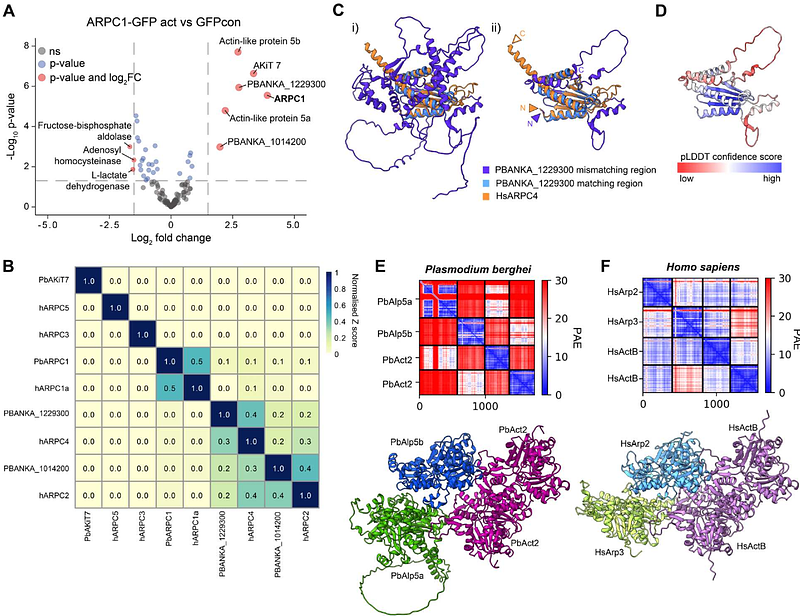A non-canonical Arp2/3 complex is essential for Plasmodium DNA segregation and transmission of malaria.

A non-canonical Arp2/3 complex is essential for Plasmodium DNA segregation and transmission of malaria.
Hentzschel, F.; Jewanski, D.; Sokolowski, Y.; Agarwal, P.; Kraeft, A.; Hildenbrand, K.; Dorner, L. P.; Singer, M.; Frischknecht, F.; Marti, M.
AbstractThe malaria-causing parasite Plasmodium has a complex life cycle involving both vertebrate and mosquito hosts. Sexual stages or gametocytes are the only stage competent for transmission to mosquitoes. Formation of flagellated male gametes from gametocytes requires rapid rounds of genome replication. Here we discovered a non-canonical Plasmodium actin-related protein 2/3 (Arp2/3) complex essential for DNA segregation during male gametogenesis. Plasmodium Arp2/3 dynamically localizes within the nucleus to the endomitotic spindles and interacts with a kinetochore protein. Deletion of key Arp2/3 subunits or interfering with actin polymerisation leads to the formation of sub-haploid male gametes and a complete block in transmission through delayed developmental arrest at the oocyst stage. Our work identified an evolutionary divergent protein complex in malaria parasites that offers potential targets for transmission-blocking interventions.